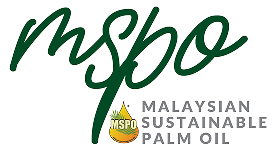Launch of MSPO HCV Assessment Guidelines


In support of sustainable and responsible palm oil production, the MS 2530:2022 standard requires all MSPO-certified entities except for oil palm dealers to conduct High Conservation Value (HCV) assessments. These assessments are essential in evaluating environmental, ecological, and social impacts, particularly on sensitive ecosystems and local communities.
To facilitate effective implementation, MSPO, in collaboration with industry experts and stakeholders, has developed two (2) dedicated HCV Guidelines:
- MSPO HCV Assessment for New Plantings and Establishments Guideline – Provides guidance for organisations to assess HCVs prior to the development of new oil palm areas.
- MSPO HCV Assessment for Existing Plantings Guideline – Assists certified entities in identifying and managing HCVs within existing plantations.
MSPO is pleased to announce that both HCV Guidelines have been finalised and will be officially available on the MSPO website starting 22 May 2025. These guidelines will serve as critical tools to strengthen environmental and social safeguards under the MSPO certification system, reinforcing Malaysia’s position as a global leader in sustainable palm oil production.
For implementation purposes:
- HCV assessments for new planting and establishment must be conducted by an MSPO External Lead Assessor.
- HCV assessments for existing planting must be conducted by an MSPO Endorsed Internal Assessor.
Only assessors who meet these criteria are authorised to conduct HCV assessments under the MSPO certification scheme. The date for the official MSPO Endorsed Assessor Training will be announced soon and the list of the Endorsed External Assessors will be published once the assessor completed the Endorsed Assessor Training,
In addition, MSPO will soon release the MSPO HCV Assessment Procedure, which outlines standardised processes for conducting HCV assessments across all MSPO certification categories, including:
- Existing plantings, replanting activities, and independent smallholders; and
- New plantings and developments, including land expansion, land cover conversion from other crops to oil palm, and the establishment of processing facilities.
The procedure outlines the logical steps and workflow required to carry out and complete an HCV assessment effectively. It aims to ensure transparency, consistency, and credibility in the application of HCV principles across the Malaysian palm oil sector.
